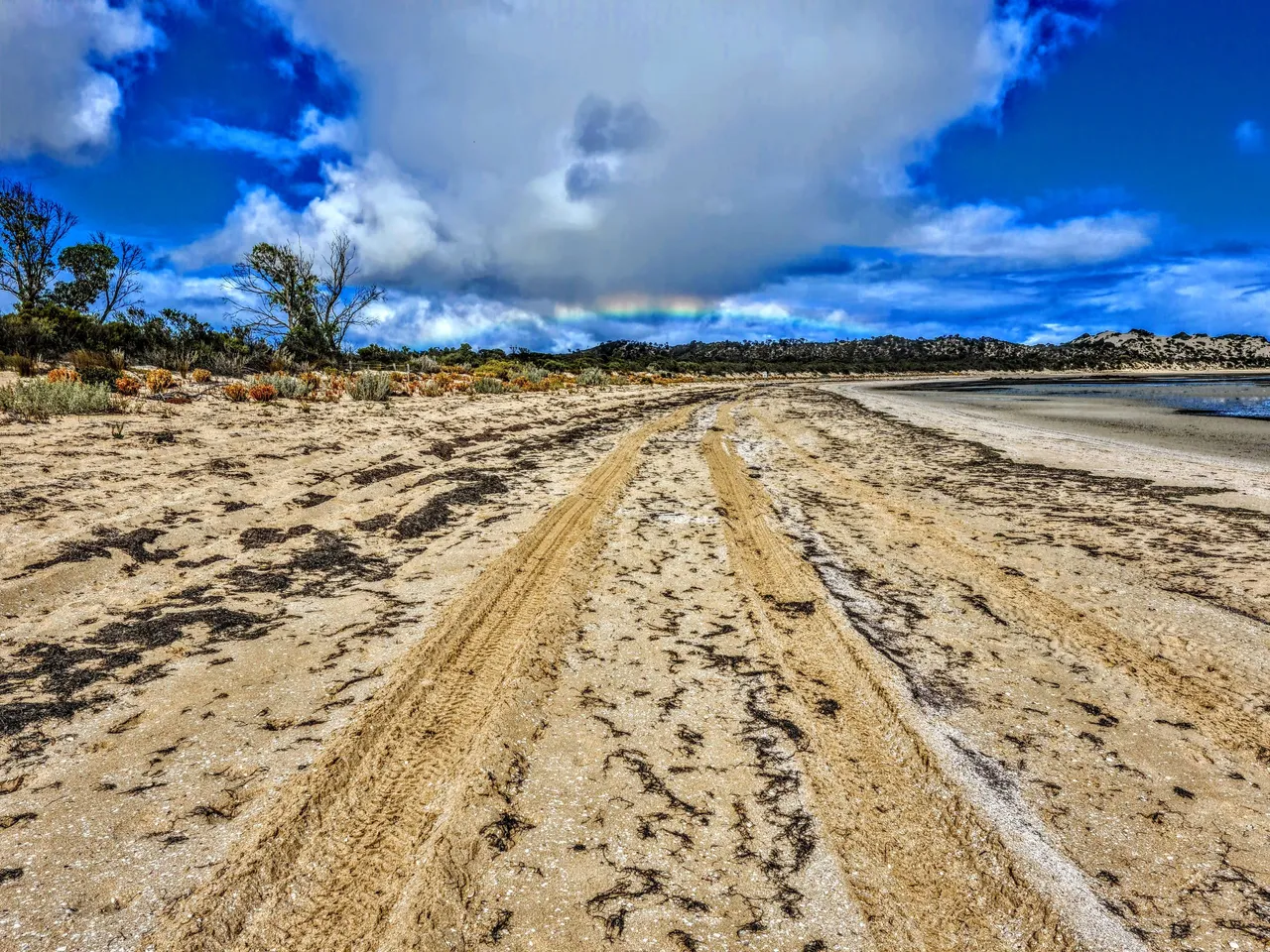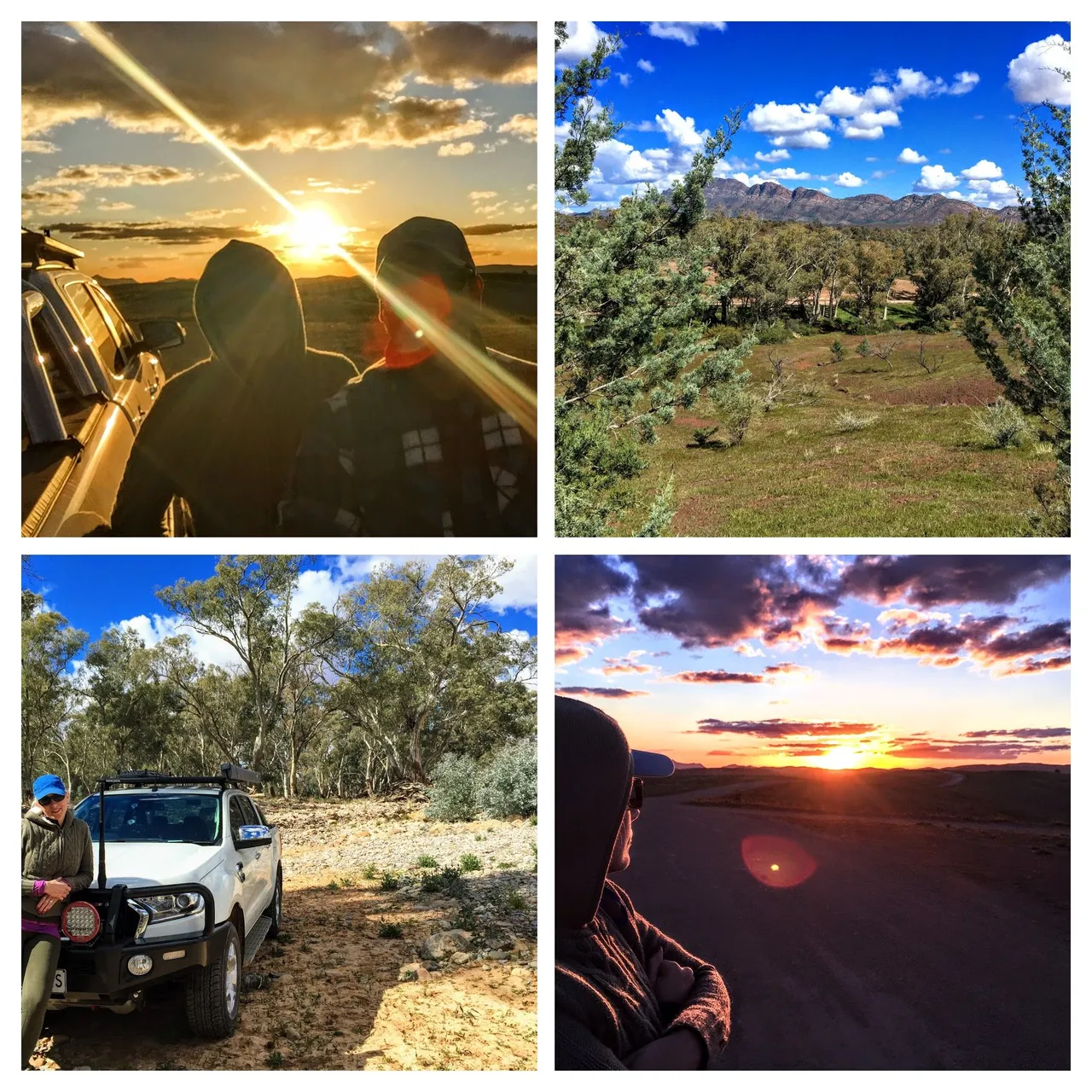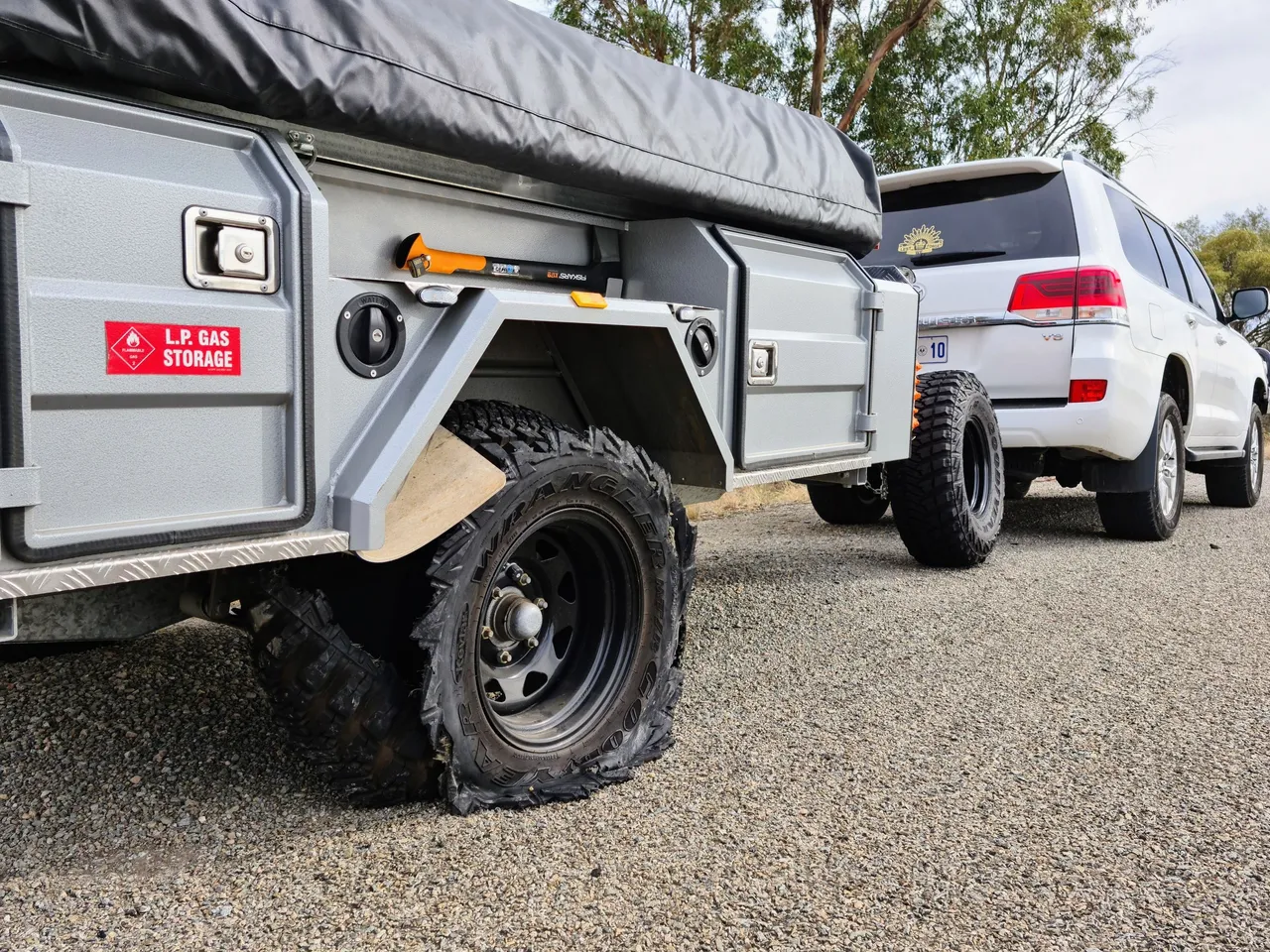
The two principles above relate to being prepared for eventualities that may arise and they have saved my ass more than a few times in business and professional situations or personal and social. Being prepared for what may arise means a better ability to capitalise upon it, or mitigate the ill-effects.
Many do this casually and without much conviction however I make it a higher priority, a wilful habit, and that has saved me a lot of trouble down the road when things have gone pear-shaped, or headed that way. It's often not until it's too late that a casual approach to preparation, or total failure to be prepared, hits home and that can be dangerous. This is very pertinent in respect of some of the hobbies I have: Off-roading, camping, firearms, shooting and hunting, hiking and other adventure/outdoor related pursuits. Preparation is important all the time of course, but when things get gnarly and one is a long way from assistance lack of preparation can bite very hard.

When I head to remote areas I have to be self-sufficient meaning taking things along I'll need, or may need as they can't be found out there. I can't take everything, there's simply not enough room, so decisions need to be made on what to take and that's specific to the location and duration in some respects and generic in others. This is called preparation.
I consider what I'll need and what might go wrong: The probability, implications, potential risk-level, difficulty or ease of how that thing can be addressed, my skills, who might be able to assist, the equipment I'll need and its suitability, durability, weight, size and operation and many other things besides. Furthermore, these things have to be considered for all aspects of the expedition from the vehicle, personal human requirements (self and others) like food, clothing, shelter, water, comfort and health, and every piece of equipment or system I will take along with me. There's a lot to consider.

There's a many systems on my four wheel drives all added after purchasing the vehicle new from the dealership; without them the vehicle isn't prepared enough.
I add things like suspension lifts, off-road tyres, GVM upgrades, auxiliary batteries and charging systems, engine tunes, electronic brake controllers, fridge-freezers, spot lights, under vehicle protection, recovery points, steel sidesteps/rock-sliders, long-range fuel tanks, diesel filters, snorkels, diff-breathers, CB UHF radios, on-board compressors, winches, bull bars...the list goes on and all of my four wheel drives have been accessorised in this way. It's done so that it's prepared to do what may be needed.
On top of that are first aid kits, air-inflation compressor, handheld GPS, recovery equipment like MaxTrax, snatch-straps, shackles and snatch-blocks, solar panels, my camper trailer, an axe, chainsaw, tools and utensils, shovel, personal clothing, food, hiking gear and backpacks, lights, emergency beacon, hand-held CB radios, maps, compass, survival equipment, firearms, ammunition, cleaning kits...There's a lot of stuff to take, hundreds of things, and all very situation-specific.
I think you get the idea right? All of these things are required, depending on the duration and location, and some are essential no matter what, so a great deal of preparation is required and that's where my preparation ethos comes into play.

𝕆𝕟𝕖 𝕚𝕤 𝕟𝕠𝕟𝕖 𝕒𝕟𝕕 𝕥𝕨𝕠 𝕚𝕤 𝕠𝕟𝕖
This doesn't mean I take two of everything; it means that one must consider what items could fail, how they may fail and how to mitigate the effects of such failures. It's an ethos, not a rule because simply packing two of everything isn't practical.
I carefully consider the trip, location, duration, weather, dangerous animals or situations I may face and other factors that could bring risk and I apply the above ethos to the preparation for it.
An example is first aid kits of which I have more than one and batteries and chargers of which I have many...a GPS unit or CB radio with no batteries is useless. I also have secondary means of charging rechargeable batteries and small portable solar panels for the job, wind up lights and so on. Food is another good example. I have a fridge/freezer on board my four wheel drive and my off-road camper trailer...but what if it fails and destroys my food? No worries, one is none and two is one...I have alternatives, non-perishable food that might not be as tasty but will sustain life. Water too, I take it...but I know where and how to find it if I need, take LifeStraw's and other means of water filtration and purification as well.
So that ethos of one is none and two is one is simply a trigger to get one thinking about what may be required, how things could go wrong and how best to mitigate the effects when it does...and then to go and do it.

ℂ𝕙𝕖𝕔𝕜 𝕒𝕟𝕕 𝕣𝕖𝕔𝕙𝕖𝕔𝕜
This is common sense really, however it's amazing how many people have gotten themselves into strife through failing to do the most simple of things, checking then rechecking.
When heading to remote places and needing to be self-sufficient, failing to check one's preparedness can end in a catastrophic way, especially in a country like mine where remote can mean many hundreds, even thousands, of kilometres away from civilisation and other people, and we have very extreme weather conditions too, deadly animals and all. Help is hard to come by out there so preparation is required but without verifying that preparation it could all fall apart through a simple oversight.
Making sure first aid kits are restocked, batteries are charged, electrical devices and cables are where they should be, tyres are inflated to the right pressures including the spare(s), the right clothing is packed, vehicl inspections are done each day and prior to the trip, there's fuel for the chain saw, the fridges are set to the right temperatures... everything really, is squared away will mean a safer and more enjoyable experience. Getting to camp with a load of perishable food in the fridge only to find out you didn't turn it on isn't going to be a good start.
This process doesn't mean things won't go wrong, that's always going to happen, but it'll mean you've probably got the things with you to address the situation when it does.

𝕀𝕥❜𝕤 𝕒𝕡𝕡𝕝𝕚𝕔𝕒𝕓𝕝𝕖 𝕒𝕝𝕝 𝕥𝕙𝕖 𝕥𝕚𝕞𝕖
This concept isn't solely about wilderness and remote places; it relates to every day life. Have you ever left home and wondered, did I turn the iron off, or did I lock the door? I have, we all forget things sometimes. Both situations could cause disastrous results, something a simple check can mitigate.
I have applied this ethos in respect of my professional life where getting things wrong, not being well prepared, often came with ramifications I was not going to enjoy. Being prepared for meetings and checking I have things in order has meant a more effective result. It works in one's private life also. Being in the middle of a DIY project then realising you don't have what you need but have taken it to a critical point may end badly. Preparing for things within a relationships will work well also. No, this isn't just a concept that works for when one is away hiking, camping, hunting or so on, and I apply it all the time, even with my Hive posts...and yes, I still get it wrong sometimes!
Having said that, I began this preparation and check/recheck process a long time ago and it was related to being prepared at home and when I went out on my trips into the wilderness places and outback areas of Australia mainly. Has having this ethos helped me be better at what I do, safer and to find more enjoyment? Yeah, of course it has. Has it been difficult to do? Nope, not at all. Yes, things will go wrong, that's the nature of life, but I'm that guy who handles it better (usually), and one who less-prepared people turn to. I like that, it comes with a degree of confidence and that's conducive to moving things forward more effectively.
Are you prepared? (I hope the answer is yes, even if it's only in one particular aspect of your life.)
I'll admit to feeling that not preparing as best as one can is tantamount to being irresponsible; that's ok if it only affects the individual, but that's rarely the case and if a person has others who rely on them, or simply who care about them, ownership and responsibility need to come into play I believe; it's just common sense.
What do you do to ensure you have the items or skills you need, when you need them? How do you prepare for potential risks, threats or hazardous situations in the home or out of it...or are the the person who just waits for something bad to happen and not know what to do about it? Have you ever prepared for a camping trip, long hike or trek and if so how did you do it, what did you take and why? Feel free to comment on these things, or anything else you wish to, in the comments below, I'll be happy to hear from you and get back to you.
Design and create your ideal life, don't live it by default; tomorrow isn't promised so be humble and kind - galenkp
[All original and proudly AI free.]
All images in this post were photographed by me.